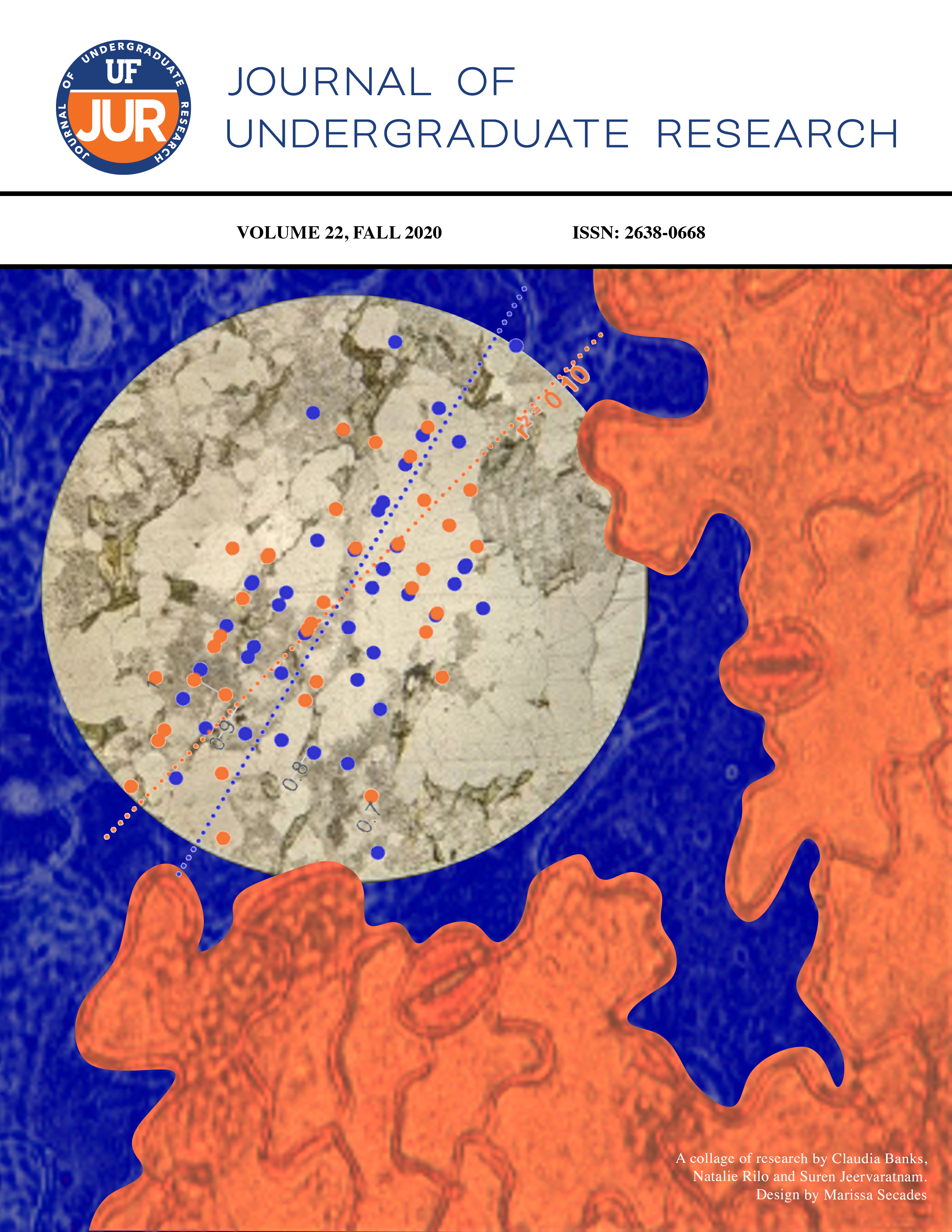Examining Caregiver Coping and Clinic Attendance in Pediatric Sickle Cell Disease
DOI:
https://doi.org/10.32473/ufjur.v22i0.121828Keywords:
sickle cell disease, caregiver coping, clinic attendance, pediatric psychologyAbstract
Sickle Cell Disease (SCD), the most common genetic disorder in the U.S., primarily affects youth of African or Latino backgrounds. Regular clinic attendance promotes positive health outcomes in pediatric SCD. Caregivers of youth with SCD endorse high levels of stress that may disrupt clinic attendance. Improved caregiver coping may help address barriers to clinic attendance in SCD families. Sixty-three caregivers and youth (Mage = 13.2, 60.3% male) completed the Responses to Stress Questionnaire- Sickle Cell Disease (RSQ-SC). The RSQ-SC assesses primary control engagement (PCE), secondary control engagement (SCE), and disengagement coping. The researchers tabulated percent of pediatric hematology appointments attended, canceled by patient/provider/due to hospitalization, and no-showed over the past year via medical chart review. Results indicated a significant positive association between caregiver education and percentage of appointments attended (r = .295, p = 0.19). A hierarchical regression revealed that caregiver coping did not predict clinic attendance [F (4, 58) = 2.114, p = 0.091, R2 Δ = 0.040] when controlling for caregiver education. In isolation, caregiver coping may not be an effective target for interventions focused on improving adherence to pediatric hematology appointments.
Downloads
Published
Issue
Section
License
Some journals stipulate that submitted articles cannot be under consideration for publication or published in another journal. The student-author and mentor have the option of determining which journal the paper will be submitted to first. UF JUR accepts papers that have been published in other journals or might be published in the future. It is the responsibility of the student-author and mentor to determine whether another journal will accept a paper that has been published in UF JUR.

